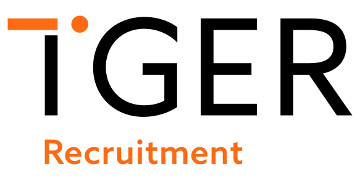The narrative is tired. We've all heard it: Gen Z are 'snowflakes' who melt under pressure, 'quiet quitters' who clock out at 5:01, and workplace revolutionaries who dare to prioritise wellbeing over grinding themselves into burnout.
But here's the thing: the very traits that make seasoned managers squirm are precisely what's forcing long-overdue changes in our workplaces. While their predecessors quietly endured toxic cultures and around-the-clock availability, Gen Z walks into interviews asking about mental health policies and flexible working. They're not afraid to say no to unpaid overtime or challenge outdated practices.
Read more: Are Gen Z demands excessive or simply well-articulated?
Is this entitlement? Or is it the kind of healthy self-respect that many of us wish we'd had the courage to display earlier in our careers?
Let's be clear: this isn't about coddling or lowering standards. It's about recognising that Gen Z isn't breaking the workplace, they're fixing it. They're showing us that productivity isn't measured in hours spent at a desk, that vulnerability can be a leadership strength, and that questioning the status quo isn't disrespect, it's innovation.
So what exactly are they teaching us? Here are some thoughts.
They're forcing leaders to develop emotional intelligence; not as a nice-to-have, but as a core competency. When a Gen Z team member openly discusses anxiety or asks for mental health support, they're demonstrating that psychological safety isn't just corporate jargon, it's a baseline requirement for peak performance.
They're also teaching us that authenticity trumps authority. The days of 'because I said so' leadership are over. Gen Z expects leaders to explain their reasoning, admit their mistakes, and show their human side. They're pushing us to lead through influence and transparency rather than position and power.
Read more: How to create a performance improvement plan fit for hybrid working and Gen Z
Third, they're showing us how to harness technology for genuine efficiency, not just endless availability. They're masters at finding digital shortcuts, automating repetitive tasks, and questioning processes that waste time. Their instinct isn't to work longer, it's to work smarter.
Perhaps most importantly, they're teaching us that purpose isn't a buzzword. When they ask about environmental policies or diversity initiatives, they're being pragmatic. They understand that in today's world, businesses that don't align with values don't last.
Unlike previous generations who saw managerial roles as the ultimate career goal, many in Gen Z view traditional management with suspicion. They look up and often don't like what they see – which isn't surprising given how many managers are promoted without sufficient training and left to figure it out themselves.
Read more: Work must work for all ages and generations
The result? Leaders are being pushed to evolve faster than ever. The traditional command-and-control playbook is being rewritten into something more human, more sustainable, and ultimately more productive.
Because they're looking for partnership over power dynamics, they want to be seen as equal contributors and they see looking after their wellbeing as non-negotiable. Remote work, flexible hours and mental health days aren't 'perks' to them, they're the baseline.
So the next time you hear someone complain about Gen Z being 'high maintenance', consider this: maybe they're not too demanding. Maybe they're just demanding enough. Maybe they're showing us what we should have been asking for all along.
The question isn't whether Gen Z needs to change to fit our workplaces, it's whether our workplaces are ready to change to harness their strengths. Because one thing's certain: they're not adjusting to our old rules, they're writing new ones. And from where I'm sitting, these new rules look a lot better than the ones we've been playing by.
Why don’t we all swap burnout as a badge of honour and opt for having better boundaries?
By Kate Waterfall Hill, leadership coach










